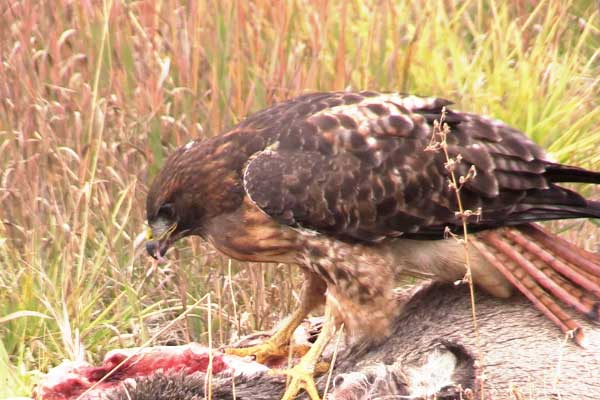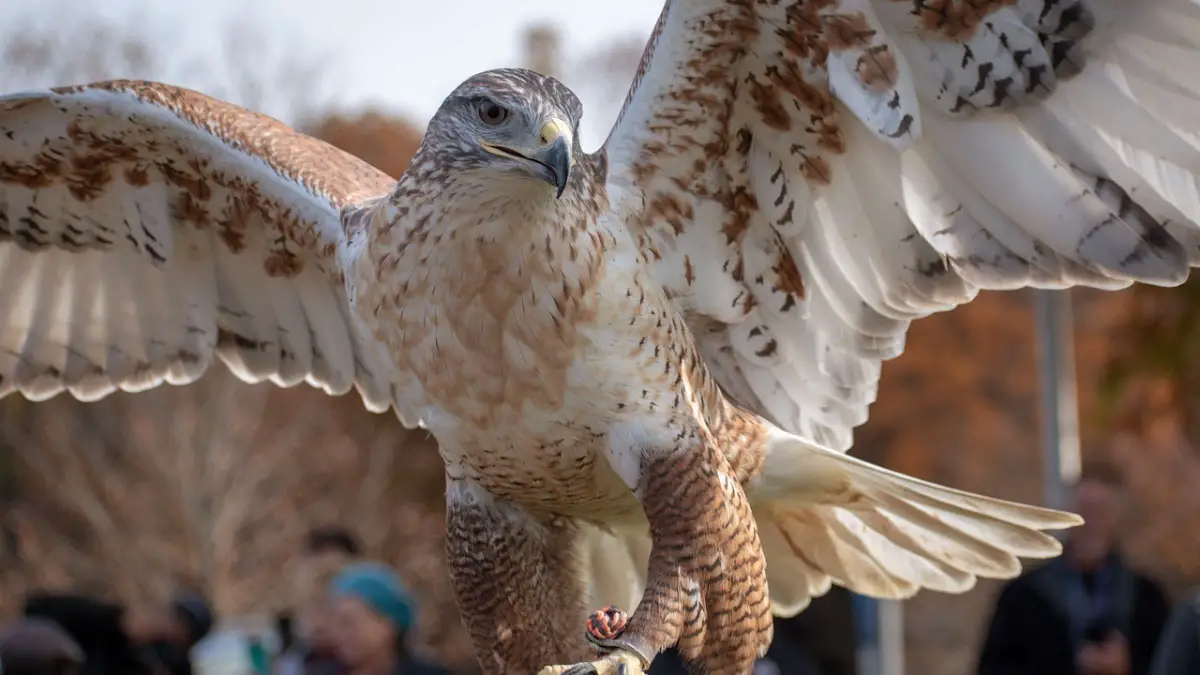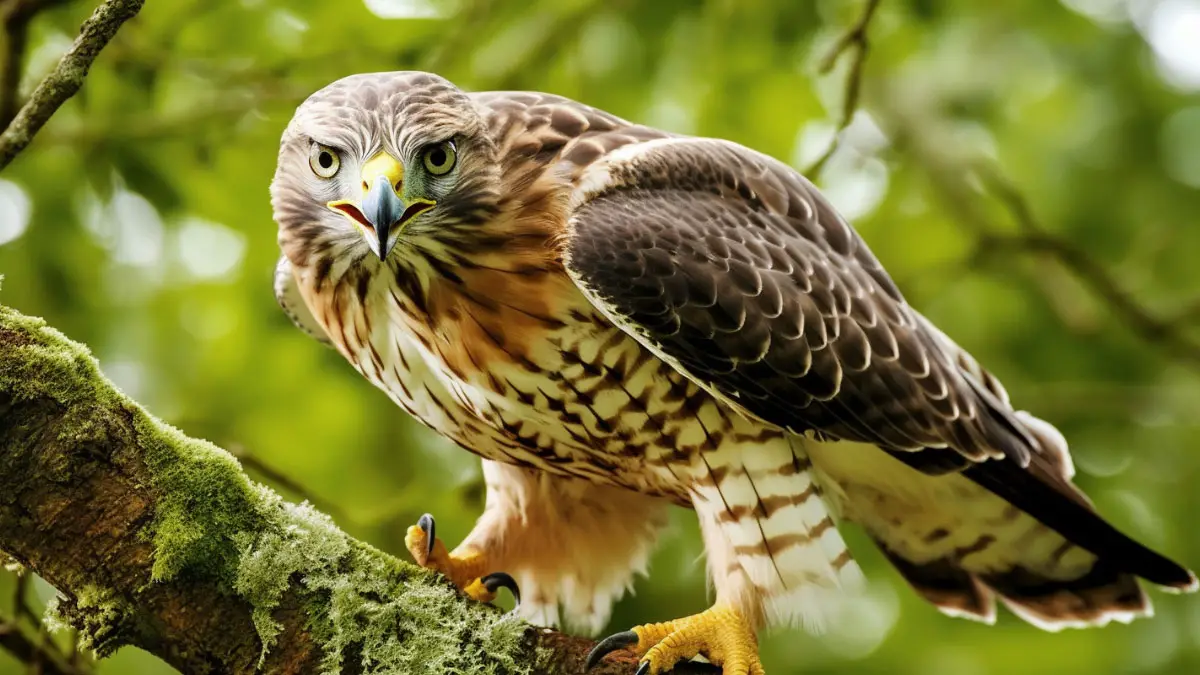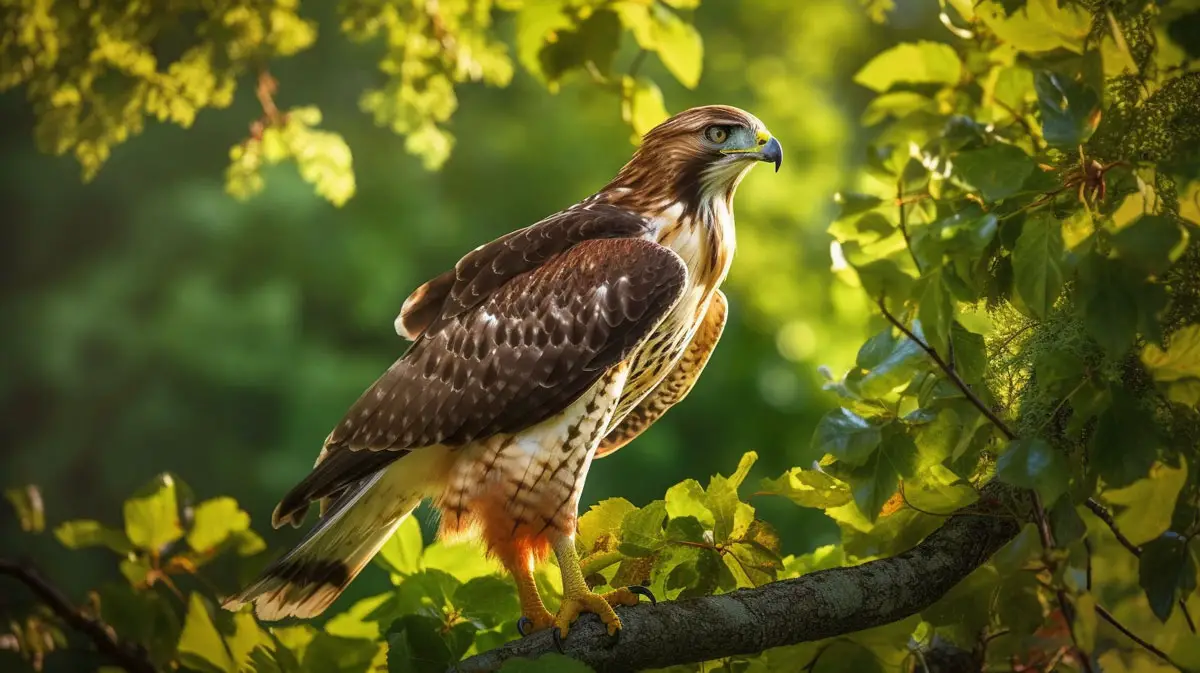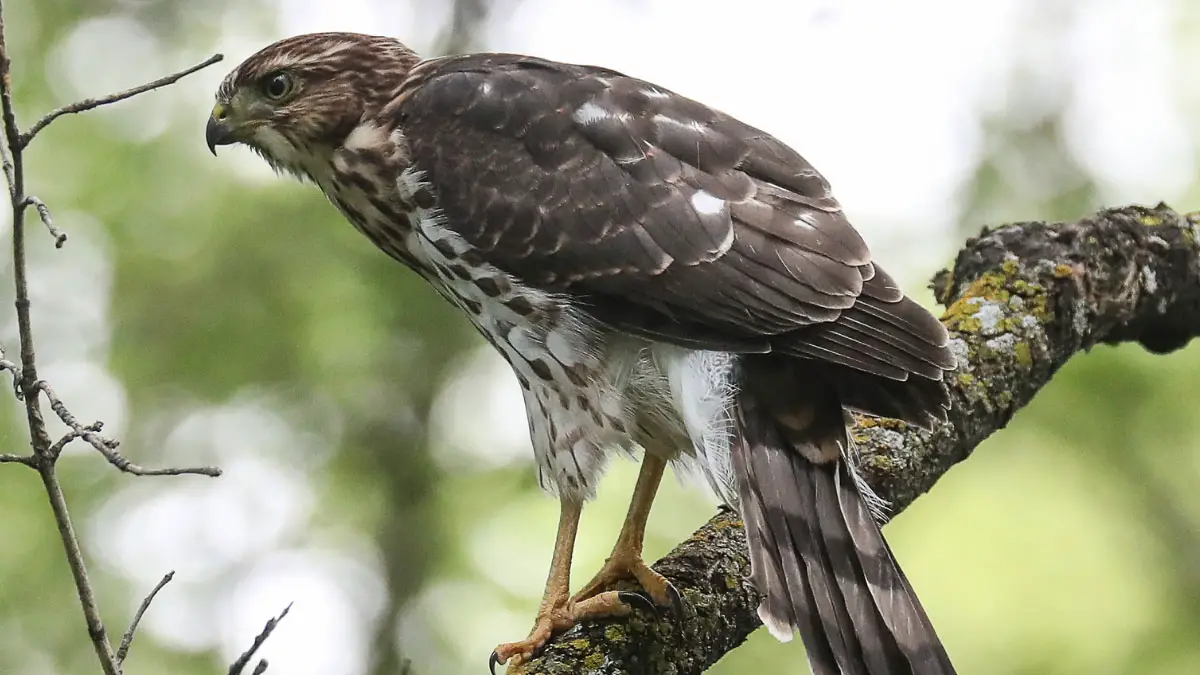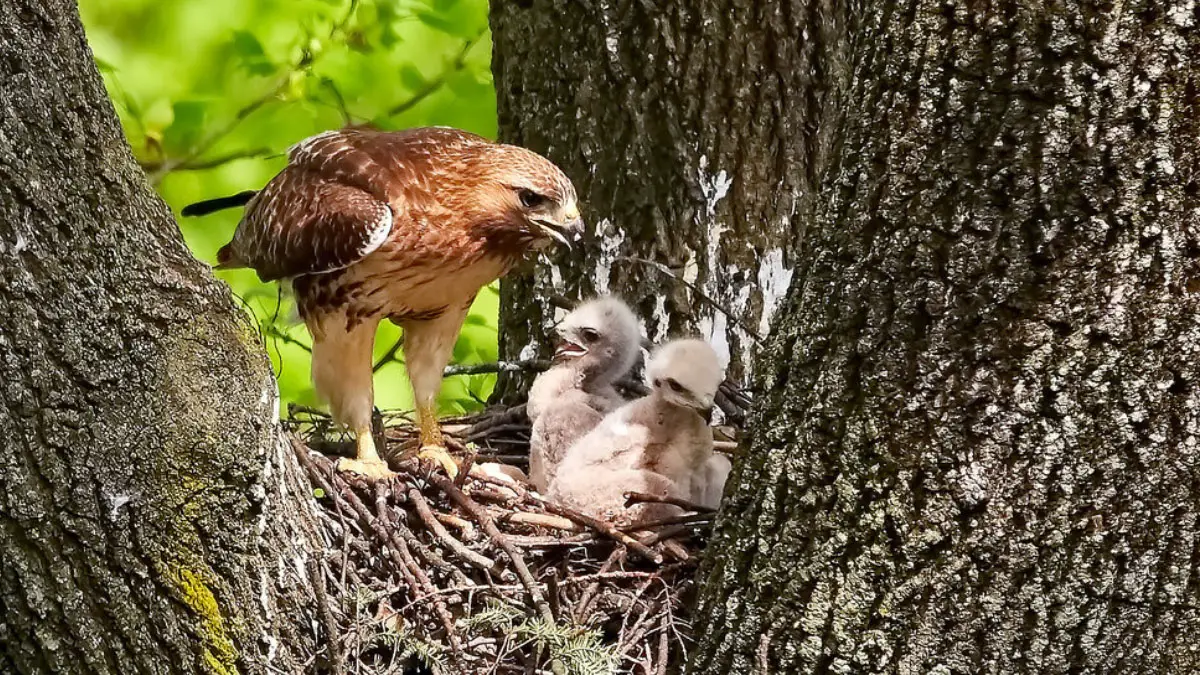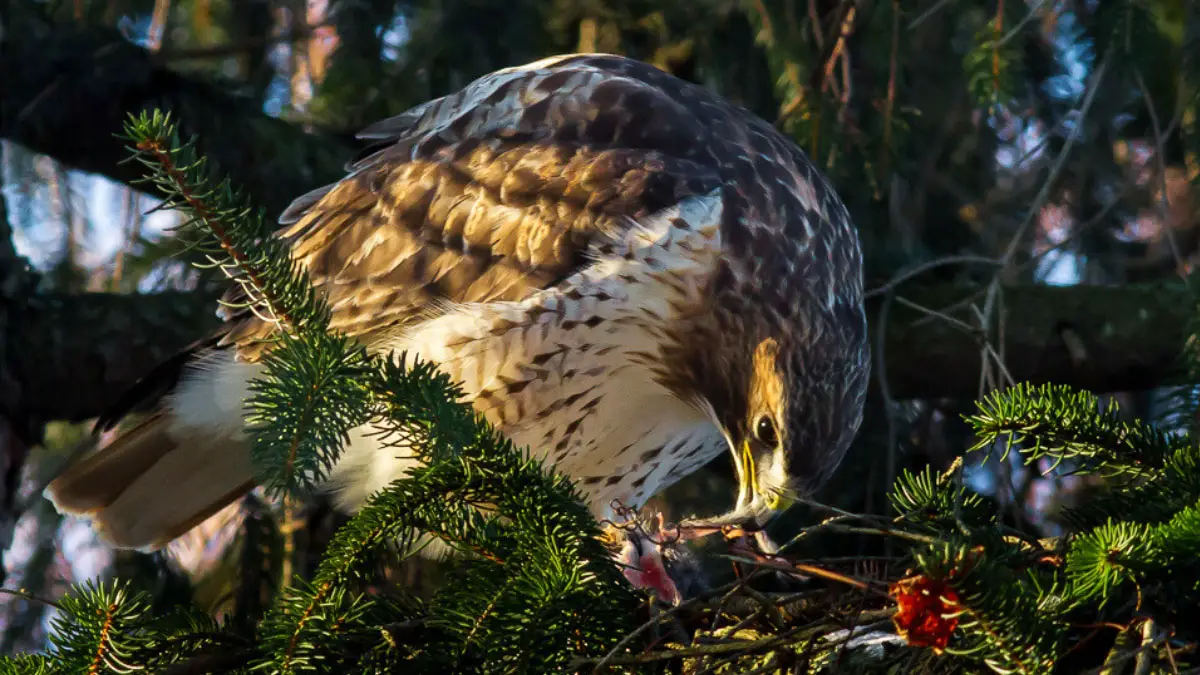Hawks are aggressive diurnal birds known to prey on small animals like lizards, rats, frogs, and snakes, among others. They have various tactics that they employ depending on the nature of their prey. But, some hawks also dare prey on bigger animals like deer, as you will see below.
Do hawks eat deer? Absolutely yes, hawks eat deer, although killing them is quite unlikely. For a hawk to kill a deer, it must tear until it bleeds to death, which can only happen if the deer is too young, sick, or wounded. Also, hungry hawks may eat dead deer because they both prey and scavenge.
You’ll be surprised to learn that all hawks are not the same. They come in different types, as you will read. Their hunting techniques also vary significantly, not to mention their target victims. Keep reading to understand more about these powerful birds that are also good strategists.
Do Hawks Eat Deer?
It’s no secret that hawks eat deer. They have been killing animals larger than them over the years. Maybe you’re wondering how much weight hawks can carry. Well, most of these birds of prey only weigh about 3 to 5 lbs and cannot lift animals heavier than them.
These shrewd birds know they do not have to carry their prey. After killing, they may try dragging, but if they can’t, they feed on the animal right from the ‘scene of the crime’. Their power entirely lies within their talons, eyesight, and ability to fly, and that’s how they overpower animals like deer.
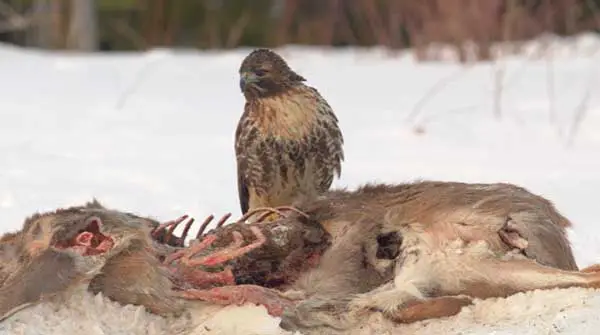
Which Hawks Eat Deer?
There are about 19 common hawk species in the United States. They differ in color, size, shape of their wings, and hunting designs. All these species of hawk eat flesh, so they will eat a deer if it’s available. But, various species have designated environments, and they hunt whatever is available in their sphere.
While only the bigger hawk species like red-tailed hawks will attempt to kill a deer, generally, all hawks would join in the feast if the deer gave in. But, a baby hawk will not attempt to attack a big animal like a deer. It is almost impossible for them to overcome the mammal. Such hawks stick to scattered pieces of meat and dead animals.
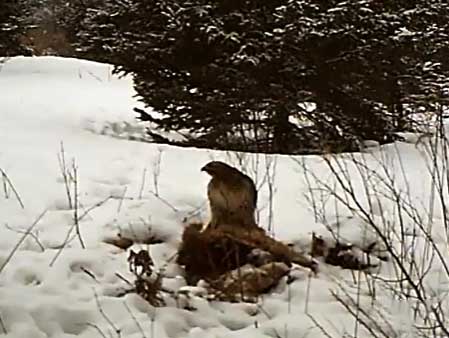
Red-tailed hawks are the most common, though, especially in North America. They are very intelligent and aggressive, especially when starved. At the same time, the cooper’s hawks chase after poultry, and the large ones like the red-tailed breed attack even larger animals like adult cats.
Hawks’ Most Favorite Food
Hawks eat anything they can catch and subdue, but their typical diet consists of meat and more meat. If they try and fail, they move to the next available prey. We cannot say they have a favorite victim, although their primary target is small animals like rodents, reptiles, birds, and mammals.
Hawks also attack and kill fawns. With easy food around, they will be fine, and that’s why their relationship with deer is not the best. Despite the baby animals being heavier, hawks still attack and kill them. If no other animals are around, they feast on the little animals until they are full.
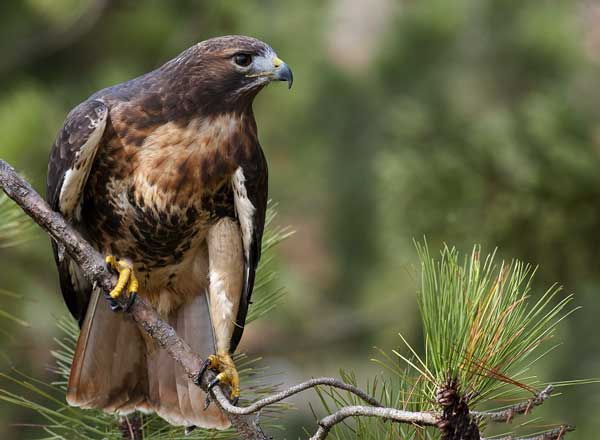
If hawks are within your yard, you better be on your guard. They are a threat to Sitka, muntjac, axis, and the white-tailed deer. If your state allows you to keep deer as pets, buy a cage so that no huge hawk will get hold of them. You should also protect your bird feeder, as the hawks may attack even a larger bird.
How Do Hawks Kill Their Prey?
The hawk population is famous for its proverbial eyesight. They can also fly very high, which enables them to spot and plan an attack on their unsuspecting prey. This gives them an advantage over the victim who is caught off guard. This is how a hawk takes down a deer.
When they get hold of the prey, hawks can employ several methods depending on the situation. But mostly, they start tearing the victim apart using their sharp and strong talons. Other things they do include;
- Pricking the victim with their hard beaks
- Suffocate the prey with their strong feet
- Breaking the victim’s neck
- Knocking it down with the wings
- Fracturing the spine
Very few animals can free themselves from the strong grip of broad-winged hawks. Even if it is a bigger animal like a deer, it may take some time to overcome the prey animal. Should more hawks join in the battle, the high chances are that the deer will lose. Only big deer will win, and it will not be a mean feat.
If they can’t kill, red-tailed hawks will eat deer remains. Hawks are naturally opportunistic and will do anything to survive. They will even oust another bird of prey like a raven if they find them eating dead meat because these two types are natural enemies.
Why Hawks Hunting Techniques are Special?
Looking at the hawk population, you may wonder how they attack larger animals and sometimes overcome them. Now, hawks take a lot of time to plan and analyze their target victim. They then stoop quickly with the aim of catching the prey. They may fail, but this will prepare them for the next move.
Now, the next move involves hovering constantly. The sharp-shinned hawks, especially, may take all the time in this state to save up on energy. They then strike at a time when they are sure they won’t miss.
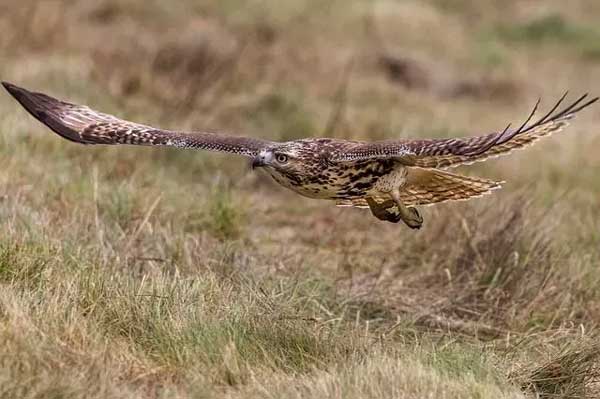
Sometimes these predatory birds move as a kettle. This happens when targeting deer or other big animals like bunnies. In this case, they take turns to assess the ground for victims before impounding. If a deer isn’t aggressive enough, it may get killed.
Related Questions
We cannot exhaust everything about hawks hunting and eating deer. More concerns keep arising when you imagine a bird attacking sizable mammals. Keep reading for more exciting revelations through the below questions.
The largest hawk species are known to be about 69 centimeters long and have a wing range of 127 centimeters. This, combined with their sharp talons and hunting skills, give them an advantage over most of their prey, deer inclusive.
Hawks can kill their prey first, and they can also eat the animal before it dies. A deer is strong and eating it alive may be a hassle. But, if the animal is not aggressive enough, a hawk will keep tearing it apart and eating it alive until it dies or gets rescuced.
Hawks can attack humans if and when provoked. It’s an unlikely situation, but it could happen, especially if you go near their laying area. Their interaction with humans is common in North Dakota, where they dominate.
Final Words
Hawks are some of the smartest birds of prey that ever existed. They may not be very big, but they know how to use their built-in ‘weapons.’ When determined, hawks can kill deer and basically larger animals than them. If the animal is isolated, these predatory birds can tear it and eat it alive until it bleeds to death.
But, if there are many animals, hawks may never attack because they know they may be subdued. In such a case, they exercise patience as they watch optimistically. If an opportunity comes up, they strike quickly without the knowledge of the victim.
Do you want to know if hawks eat foxes or snakes? Read our articles about it to learn more.
